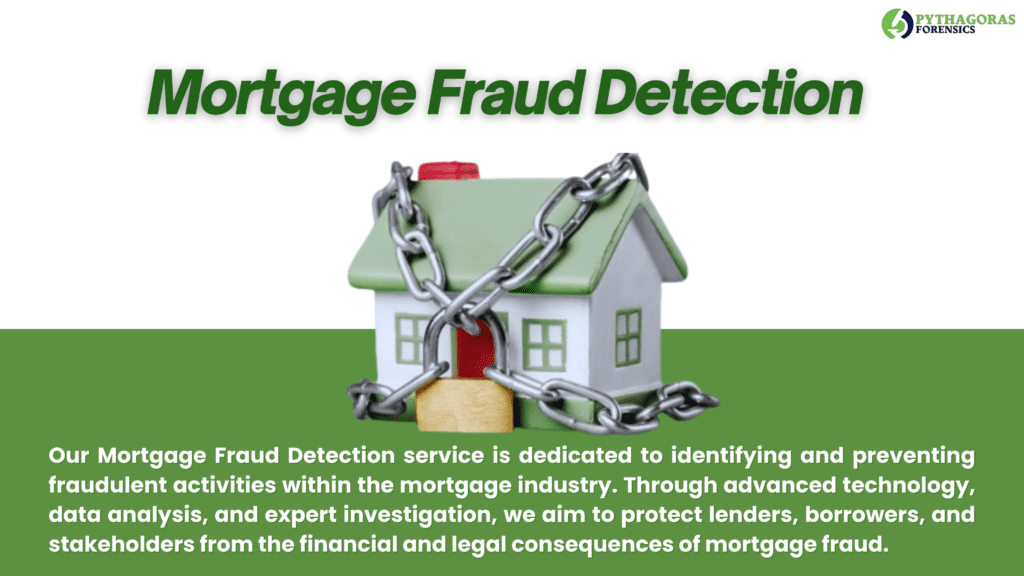What is Mortgage Fraud?
Mortgage fraud is a deliberate act that involves deception and misrepresentation of facts. It is when lenders, borrowers, appraisers, or mortgage underwriters intentionally provide false information in the process of buying, funding, or insuring a mortgage loan or influencing the terms of a loan.
Lenders and borrowers can commit mortgage fraud, either to gain ownership of a property or to steal from lenders.
Mortgage fraud can be committed by individuals who intend to occupy a property as a primary residence or by groups of investors who defraud via rental properties or commit appraisal fraud.
It is primarily done to receive a larger loan amount than permitted if the application had been made honestly.
Mortgage fraud is a serious crime with potentially severe consequences, so it’s important to know how it works and what you can do to avoid it.
How does mortgage fraud work?
Mortgage fraud can fall into two general categories which are:
- Fraud for profit: Those who commit this type of fraud are often industry insiders such as bank officers, attorneys, mortgage brokers, loan originators, appraisers, and other professionals, using their specialized knowledge or authority. Individuals or groups intentionally manipulate the mortgage process by creating fake documentation, inflating property values, or conducting straw buyer schemes to make a profit.
- Fraud for housing: Those who commit this type of fraud are individuals who want to obtain a mortgage to buy a house for personal use but give false information on their application to qualify for a loan. A borrower who wants to acquire or maintain ownership of a house takes illegal actions such as misrepresenting their income, employment, or financial assets to be eligible for it.
What are the types of mortgage fraud?
There are several types of mortgage fraud. Here are some of the most common ones to look out for:
- Occupancy fraud: This occurs when borrowers claim they will live in the property when they actually plan to rent it out. The borrowers do this to obtain favorable loan terms and lower interest rates even though the property will actually be vacant or used as investment property.
- Income fraud: As the name implies, borrowers may submit false income documents required for the loan amount. The borrower might also present fake proof of employment such as fake pay stubs and employment documentation to inflate their income. This misrepresentation can make them appear more eligible for the loan than they are.
- Straw Buyer fraud: This occurs when an individual applies for a mortgage to buy a property on behalf of someone else. An individual who intentionally acts on behalf of the real buyer, who cannot obtain a loan probably due to bad credit, misrepresenting the nature of the transaction. Once the transaction is completed by the straw buyer, the property name will be transferred to the real buyer.
- Appraisal fraud: This occurs when the value of a home is inflated beyond its actual value. A higher home appraisal usually leads to a higher home price and more cash for the home seller. Appraisal fraud is particularly common in property flipping, where a home is purchased below the market value and immediately resold at a profit with an inflated appraised value, leaving investors with loans exceeding actual property value.
- Claiming deceased estates: Commonly known as inheritance fraud, this scheme involves individuals or businesses that falsely claim to be heirs or beneficiaries of a deceased person’s estate to gain access to the deceased’s bank accounts, property, or investments.
- Liability fraud: This happens when borrowers fail to disclose significant financial liabilities, such as car loans, student loans, or other mortgages, on their loan applications. This makes it difficult for lenders to accurately assess a borrower’s ability to repay debts.
- Use of private companies: Criminals can inflate the value of a property by selling it multiple times within related private companies before approaching a lender for an inflated mortgage. This practice is increasingly common using off-shore companies.
- Mortgage wire fraud: Also known as application hijacking, fraudsters intercept and manipulate the communication between homebuyers, sellers, and lenders during a real estate transaction. Usually, the fraudster will divert mortgage funds to their accounts, leading to financial losses for the legitimate parties involved.
- Asset Rental Fraud: This is the type of fraud a borrower may rent or borrow assets from other individuals to make it appear as though they’re more qualified for a mortgage loan than they actually are. Once the mortgage closes, they return the assets they rented or borrowed to the original owner.
Mortgage fraud red flags
To reduce the risk of mortgage fraud, compliance teams should be aware of these red flags and investigate thoroughly when anything is suspected:
- Inconsistent income Fraud: Discrepancies between the borrower’s reported income on the mortgage application and their documented income, such as tax returns or pay stubs, can raise suspicion. Mostly, the funds come from a different individual or institution instead of the supposed buyer. Also, when the supposed buyer does not intend to personally occupy the property, or when tracking shows that the property title has been transferred to another person shortly after the sale. These can definitely be a scam because these individuals are often used to hide the true borrower’s identity.
- Multiple mortgage applications: Numerous applications submitted by the same borrower to various lenders within a short timeframe may signal an attempt to secure multiple loans simultaneously.
- Lack of payment history: If the borrower has no documented history of making rent or mortgage payments, this could indicate that they are not a credible borrower.
The Penalties for Committing Mortgage Fraud?
Mortgage fraud is a serious offense and can lead to prosecution and even jail time. Hence, it is crucial to take steps to avoid mortgage fraud in all ways. Some common penalties associated with mortgage fraud include:
- Criminal penalties: Penalties for committing mortgage fraud include fines, imprisonment, restitution, and probation.
- Civil penalties: Victims of mortgage fraud can take legal action against the perpetrators to recover financial damages. Courts may also order the forfeiture of assets that were acquired through fraudulent means, such as properties purchased with fraudulently obtained mortgage loans.
- Regulatory and professional consequences: Regulatory and professional consequences are severe for individuals and entities involved in mortgage fraud. Mortgage brokers, real estate agents, appraisers, and lenders may face revocation of their professional licenses. Perpetrators of mortgage fraud may also be barred from working in the financial or real estate industries. It also leads to stricter lending practices and more regulatory oversight.
Reporting Mortgage Fraud
Mortgage fraud is a serious crime with significant financial and legal consequences. It encompasses a range of illegal activities that can damage both individuals and the broader financial system. Therefore, you need to report immediately you sense or fall for mortgage fraud.
Report to fraud agencies and law enforcement. At Pythagoras Forensic Services Limited, our Mortgage Fraud Detection service is dedicated to identifying and preventing fraudulent activities within the mortgage industry.
Through advanced technology, data analysis, and expert investigation, we aim to protect lenders, borrowers, and stakeholders from the financial and legal consequences of mortgage fraud.
Contact us today @ https://pythagorasforensics.com/contact-us/






